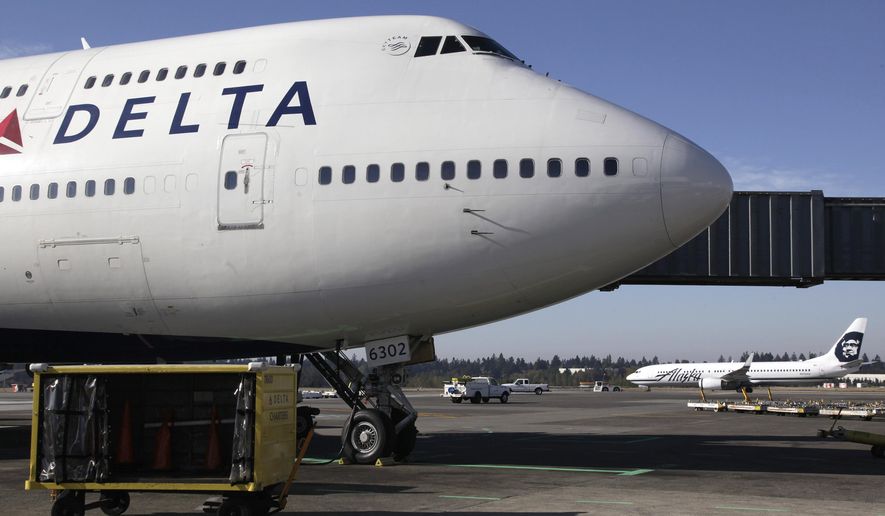As the Obama administration moves ahead with regulations limiting emissions from aircraft, environmentalists are urging the federal government to take a hard line on the airline industry as part of the broader effort to combat climate change.
The Environmental Protection Agency on Tuesday held a public hearing on the proposed rules at its Washington headquarters, inviting airline industry representatives, state government officials, environmental activists and others to speak about what would be the first regulations in U.S. history limiting aircraft emissions.
Aircraft are the third-largest source of U.S. greenhouse gas pollution, the administration says, though they emit much less than power plants and automobiles.
The EPA already has targeted power plants, with its recently released Clean Power Plan, and the auto industry through tough fuel-efficiency standards.
Now the agency is eyeing restrictions on aircraft and could release new regulations as soon as next year. Supporters of the EPA’s climate agenda argue those regulations must make clear to the rest of the world that the U.S. will lead on climate change.
“The United States must shoulder the greatest share of the burden for making emission reductions,” Kate DeAngelis, climate and energy campaigner with Friends of the Earth, told EPA officials at Tuesday’s hearing. “In order to achieve the necessary emissions reductions to avert catastrophic climate disruption, the United States must take significant strides to reduce carbon pollution from every sector of the economy, including aircraft.”
Tuesday’s hearing came amid turmoil at the EPA. The agency is under intense fire following last week’s release of the Clean Power Plan, which limits carbon emissions from power plants. Critics say the plan will kill jobs and slow economic growth, and federal data has shown the proposal will raise electricity rates.
The EPA also is taking heat after an agency-led crew last week accidentally dumped more than 3 million gallons of toxic fluid from a Colorado mine into the Animas River.
Still, agency officials are pressing ahead on the regulatory front.
But as the EPA finalizes aircraft restrictions, industry leaders say the agency must keep in mind that airlines have made dramatic improvements in pollution control and fuel efficiency in recent decades without government interference.
“As the record of our members demonstrates, we take our role in controlling greenhouse gas emissions very seriously,” said Nancy Young, vice president of environmental affairs for Airlines For America, the industry’s leading trade group.
“The industry has improved fuel efficiency by 120 percent since 1978,” Ms. Young said at Tuesday’s hearing.
Indeed, some Republican lawmakers on Capitol Hill and other critics contend that new EPA regulations are unnecessary because the industry has made such significant improvements without government mandates. They also argue more EPA rules likely will result in higher airfares for consumers.
Moving forward, it remains to be seen whether the agency will craft its own independent rules or whether it will seek to join the U.S. to an international set of standards still under consideration. A United Nations agency is working to craft a set of worldwide emissions limits, and the administration could commit the U.S. to those standards.
The EPA also could move ahead with its own regulations, though nation-specific aircraft limits are seen as much less effective at controlling global emissions.
In the past, the White House has been skeptical of joining with other nations to impose emissions targets.
Three years ago, the administration fought off the European Union’s attempt to impose pollution restrictions on all flights coming in and out of Europe.
The EU eventually abandoned the plan for flights to or from non-European countries — a concession that largely was the result of heavy pressure from the U.S.
• Ben Wolfgang can be reached at bwolfgang@washingtontimes.com.




Please read our comment policy before commenting.